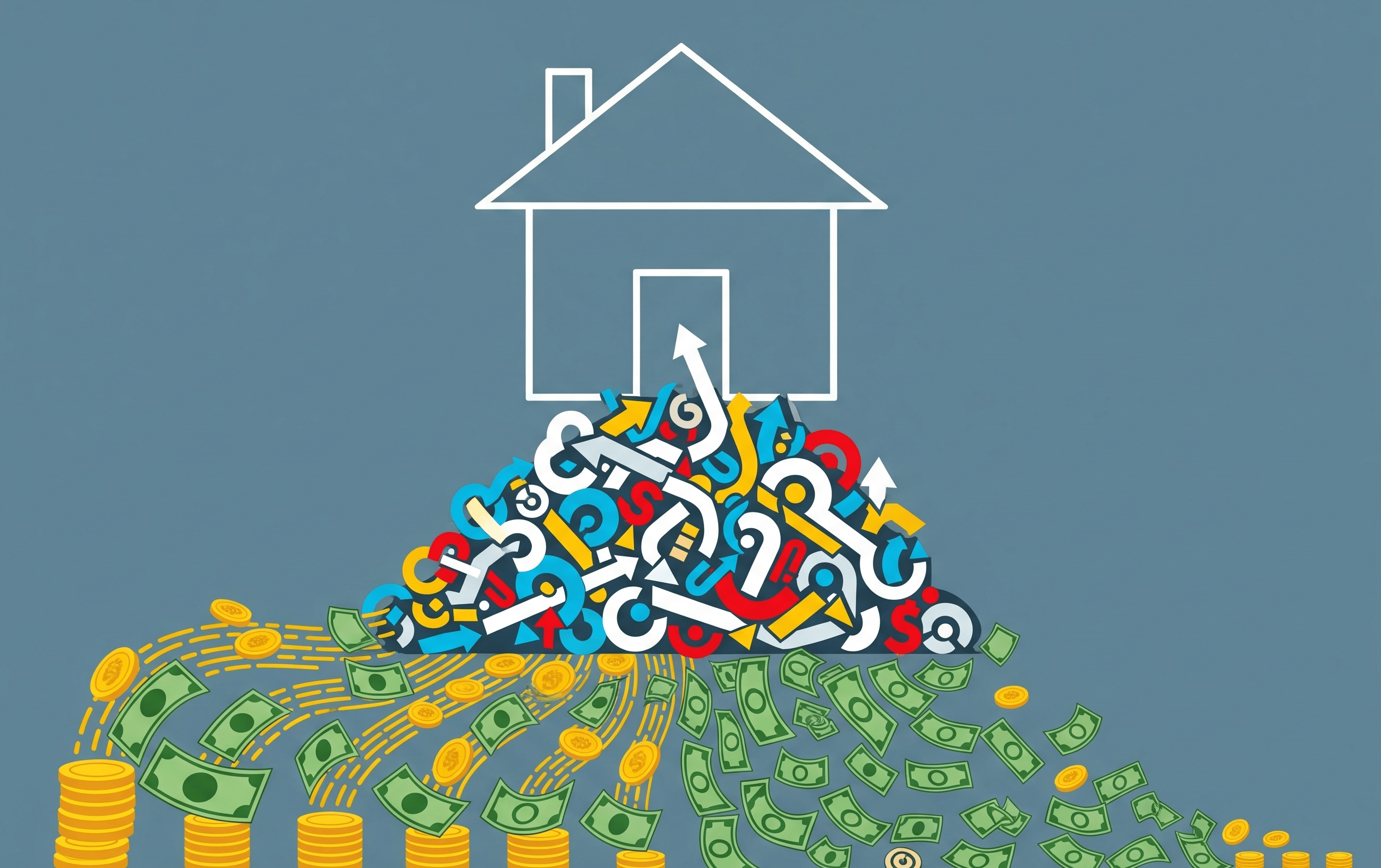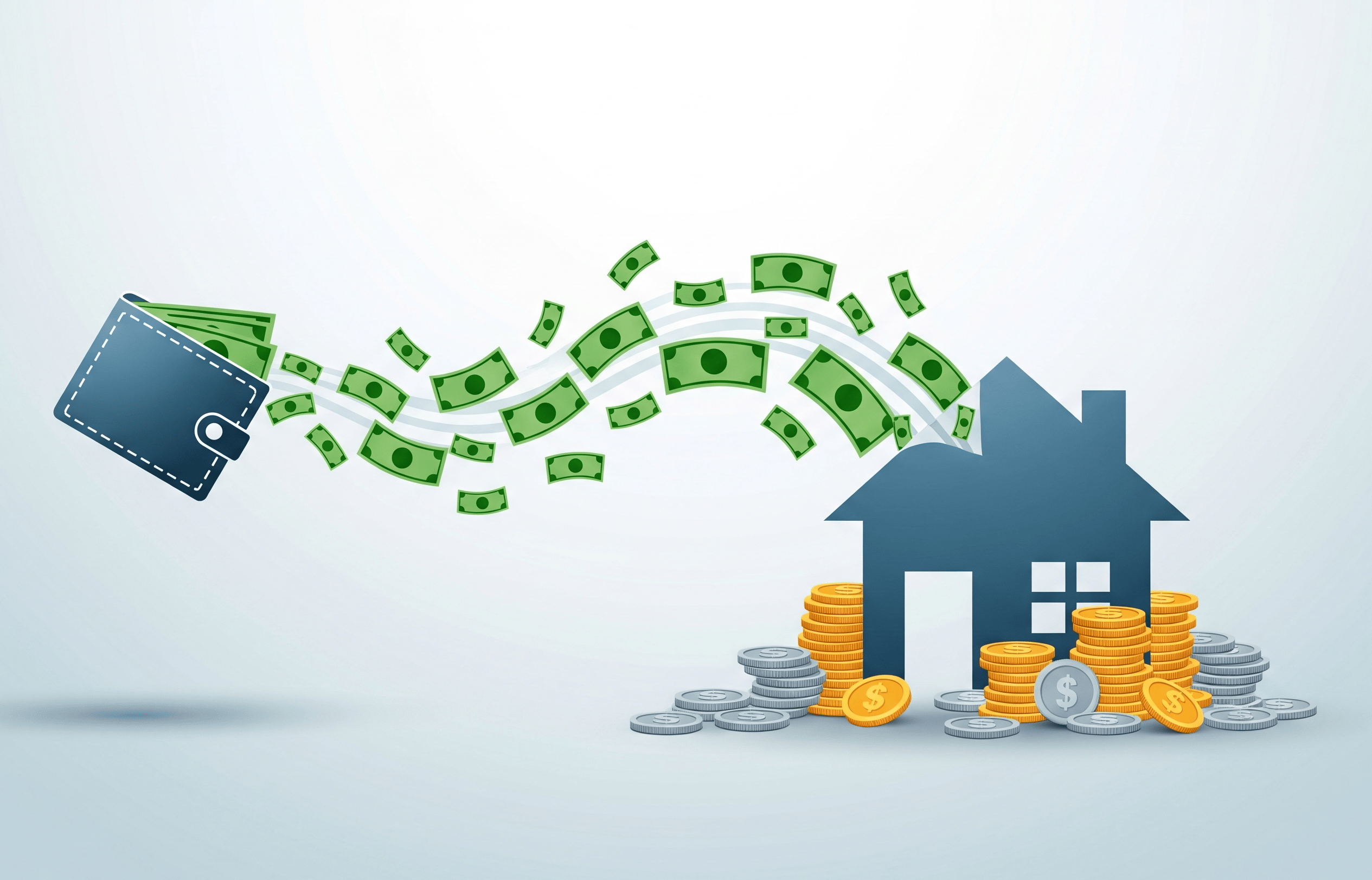by Joyce Jiang (marketing and finance enthusiast, creative solutions, data storyteller) 5/4/2025
Table of Contents
- How Does Mortgage Interest Work With Monthly Payments?
- How Does Mortgage Interest Work With Fixed vs. Adjustable Rates?
- What Factors Affect How Mortgage Interest Works?
- How Does Mortgage Interest Work When You Want to Save?
- Real-Life Story: Buying Smart During Rising Rates
- Real-Life Story: Buying Smart During Rising Rates
- How Does Mortgage Interest Work in 2025 Trends?
- Interest-Only Mortgages
- Buydown Mortgages
- Hybrid ARMs
- Final Thought
If you're planning to buy a home or refinance, one of the first questions you'll face is: how does mortgage interest work? Mortgage interest affects your monthly payment and the total cost of your loan. Luckily, it's not as complicated as it sounds. Let's break it down step by step with clear examples, updated tools, and trends to watch in 2025.
How Does Mortgage Interest Work With Monthly Payments?
When you borrow money to buy a home, your lender charges interest on the loan. This is the price you pay to access those funds. But how does mortgage interest work in your monthly payment?
The answer lies in something called amortization. Each payment is split between principal (the amount you borrowed) and interest. In the early years, a large portion of your payment goes toward interest. As time passes, more of your payment starts reducing the principal balance.
Try the Consumer Financial Protection Bureau's loan calculator to see how much interest you'll pay based on your loan terms.
How Does Mortgage Interest Work With Fixed vs. Adjustable Rates?
Typically, you'll choose between a fixed-rate or adjustable-rate mortgage (ARM). But how does mortgage interest work differently in each case?
- Fixed-rate mortgages keep the same rate for the life of the loan. You'll have steady payments month after month.
- Variable-rate mortgages (also called adjustable-rate mortgages or ARMs) start lower, but can rise over time.
As of May 2025, fixed mortgage rates hover around 6.7% (source: Fannie Mae). If you prefer predictability, a fixed rate may be safer.
What Factors Affect How Mortgage Interest Works?
Rates can vary widely from one borrower to another. But what actually affects how mortgage interest works in your case?
Several key factors play a role:
- Credit score - A better score often leads to a lower rate.
- Loan type and term - Shorter loans generally have lower interest.
- Down payment - The more money you put down, the less risk for the lender.
- Economic conditions - Inflation, unemployment, and Federal Reserve policies all influence mortgage rates.
You don't need a perfect credit history to get started. Tools like credit builder loans, such as the one offered by Cheers Credit, can help people without traditional credit access build strong payment histories, one month at a time.
To stay ahead, check your credit score regularly. You can get free reports from all three major bureaus at Annualcreditreport.com.

How Does Mortgage Interest Work When You Want to Save?
Once you know how mortgage interest works, the next step is using that knowledge to reduce your cost. Fortunately, there are several ways to save:
- Make extra payments - Even small amounts help lower your balance faster.
- Switch to biweekly payments - You'll end up making one extra payment per year.
- Refinance - If rates fall or your credit improves, refinancing could lower your rate significantly.
To compare loans side by side, try this worksheet from the U.S. Department of Housing and Urban Development.
A Real-Life Story: Buying Smart During Rising Rates
Sofia, a first-time buyer in Illinois, locked in a 6.4% fixed rate in late 2023, right before rates climbed. She had considered an adjustable-rate mortgage but chose a fixed rate to avoid surprises.
When rates hit 7.2% in mid-2024, she was relieved. "My payments are high, but at least I know what to expect," she shared on Reddit. She even began adding $50 per month to her principal to reduce long-term interest.
Sofia's story shows the value of understanding how interest works, especially when on a budget.
How Does Mortgage Interest Work in 2025 Trends?
As we move through 2025, homebuyers are finding creative ways to manage interest. Due to shifting rates and rising home prices, several trends are emerging:
1. Interest-Only Mortgages
These loans let you pay just the interest for the first few years. Eventually, the full payment kicks in. While they reduce early costs, they often result in higher overall expenses.
To learn more, visit the Federal Housing Finance Agency.
2. Buydown Mortgages
This option lets a seller or builder cover part of your interest upfront. As a result, you enjoy temporarily lower monthly payments.
3. Hybrid ARMs
These start with a fixed rate for 5-10 years and then switch to variable. It's a popular choice for buyers who don't plan to stay in their home long-term.

Final Thought
Understanding how mortgage interest works gives you an edge. Rather than guessing your way through loan offers, you can make informed decisions, budget with confidence, and protect your financial future.
Use trusted tools, stay alert to market changes, and don't rush the process. The more you learn now, the more you'll save later.









